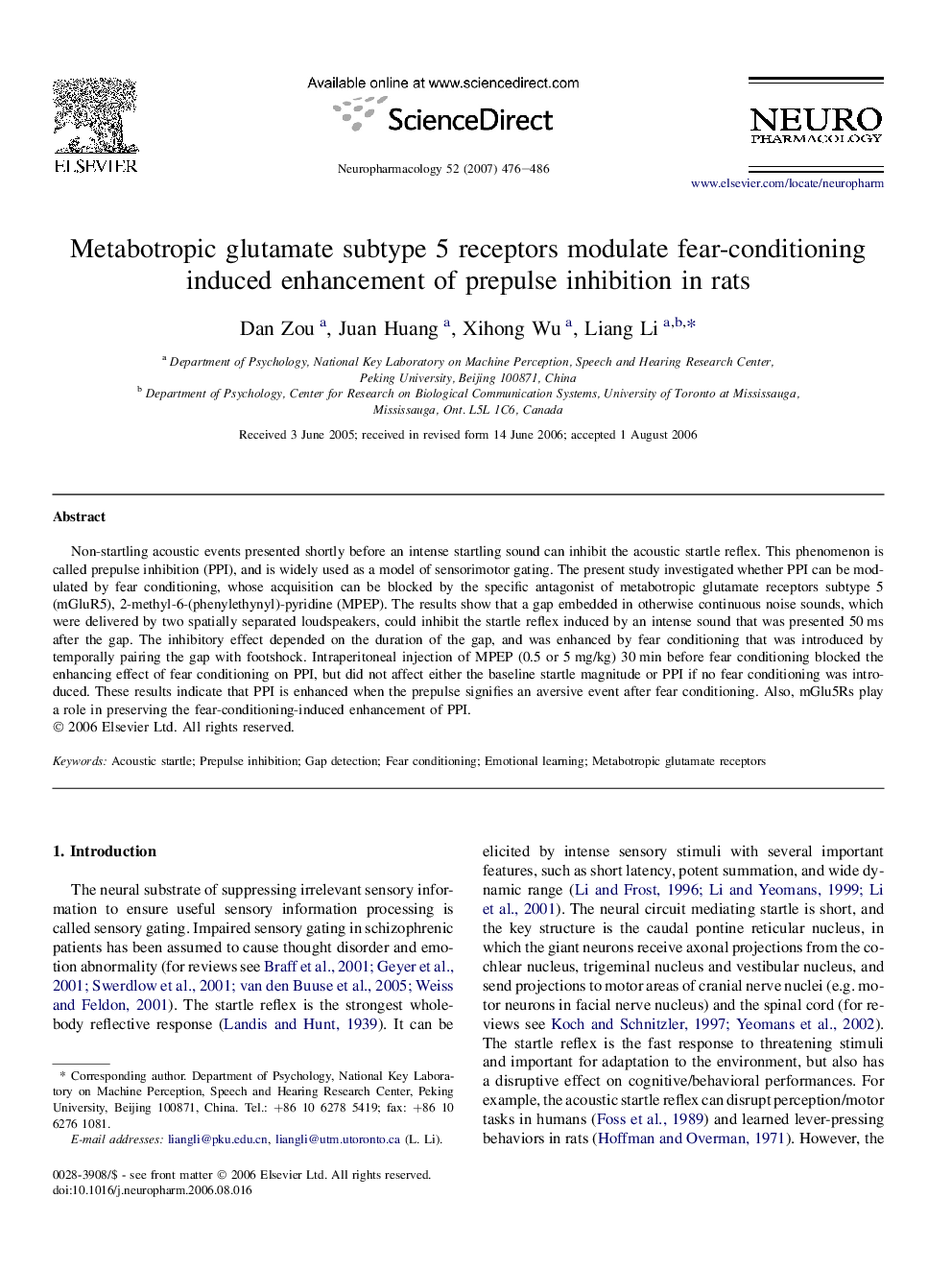| Article ID | Journal | Published Year | Pages | File Type |
|---|---|---|---|---|
| 2494815 | Neuropharmacology | 2007 | 11 Pages |
Abstract
Non-startling acoustic events presented shortly before an intense startling sound can inhibit the acoustic startle reflex. This phenomenon is called prepulse inhibition (PPI), and is widely used as a model of sensorimotor gating. The present study investigated whether PPI can be modulated by fear conditioning, whose acquisition can be blocked by the specific antagonist of metabotropic glutamate receptors subtype 5 (mGluR5), 2-methyl-6-(phenylethynyl)-pyridine (MPEP). The results show that a gap embedded in otherwise continuous noise sounds, which were delivered by two spatially separated loudspeakers, could inhibit the startle reflex induced by an intense sound that was presented 50Â ms after the gap. The inhibitory effect depended on the duration of the gap, and was enhanced by fear conditioning that was introduced by temporally pairing the gap with footshock. Intraperitoneal injection of MPEP (0.5 or 5Â mg/kg) 30Â min before fear conditioning blocked the enhancing effect of fear conditioning on PPI, but did not affect either the baseline startle magnitude or PPI if no fear conditioning was introduced. These results indicate that PPI is enhanced when the prepulse signifies an aversive event after fear conditioning. Also, mGlu5Rs play a role in preserving the fear-conditioning-induced enhancement of PPI.
Keywords
Related Topics
Life Sciences
Neuroscience
Behavioral Neuroscience
Authors
Dan Zou, Juan Huang, Xihong Wu, Liang Li,
